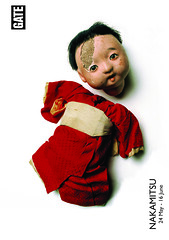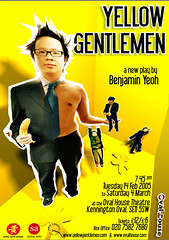Richard Bean comments on critics
Bean comments on Harvest criticism here.
I think it is hard for writers not to be affected by critics to some extent and it’s good to know, very good and important writers have the jitters about it too.
Critics have pointed to an “unbalanced” last scene. From my view, it may be argued that itis unbalanced in the context of the pace of the whole play but I think that is to look at it wrongly.
The play spans the decades, and each scene to some extent reflects the decade it represents. To the slow start in the first scene, which is pre-war and where life is a slower paced beast. To the last scene, which some view as “sensationalist” but to me is just a better reflection of the times we live in. 2005 is a faster paced, more sensationalist and in some ways more extreme year/decade than the previous decades. The characters also show a bit of nostalgia. But I think so would you if you’ve been a pig farmer or dreamed of pigs for almost 100 years.
I’m not sure the critics have thought hard enough about the play in the context of today’s world and I believe Bean is right to have the last scene as he does.
comments
2 Responses to “Richard Bean comments on critics”


I saw Harvest a week ago and a week later I am still passionately discussing it with anyone who will listen. Its not a perfect piece of theatre (but then, what is?) and its not without its faults – certainly as the play moves into modern day it does feel somehow ‘weaker’ and less weighty, perhaps because it becomes more familiar and much more farcical (a pig worker attempting suicide with a rope in a kitchen had me in stitches). The last scene is sensational, but that’s only because similiar cases have been highlighted in the media and are what we urban folk stereotypically think of life on a farm. If we hadn’t heard of Tony Martin or any other such cases, it would have been just as shocking and insightful as the preceeding scenes.
The reason Harvest deserves to be praised is in turning a potentially heavy and dull subject into something intelligent and entertaining, through the use of well-developed characters and a well plotted storylline. At three hours long and with so many strands and facets to it, compared to much modern theatre, Harvest feels like a piece of theatre well done and darn good value for money. And I’ve never been in a ‘serious’ play where the actors had to pause to let the audience finish laughing.
[...] Nadia makes a good point in animals vs. humans. She suggests animals do not have a sense of justice. [...]